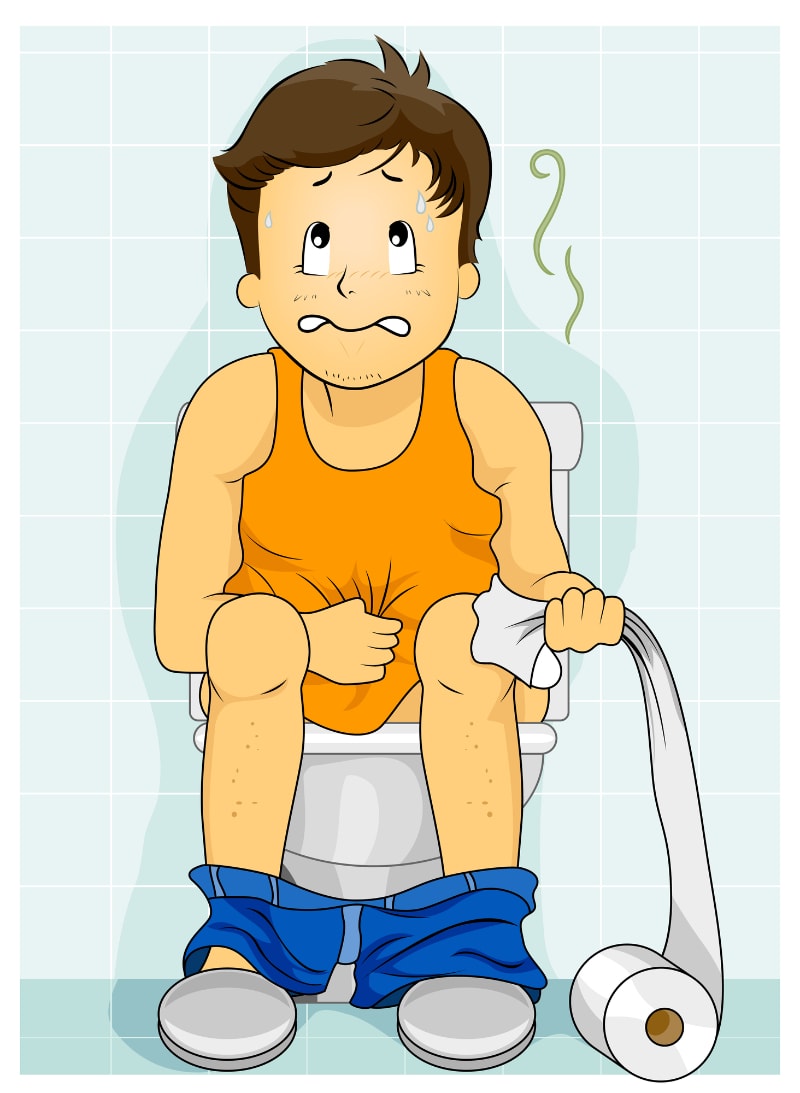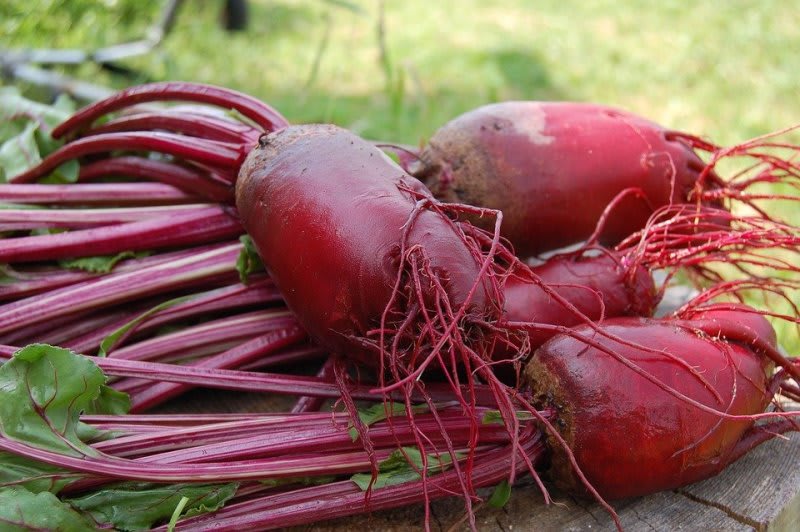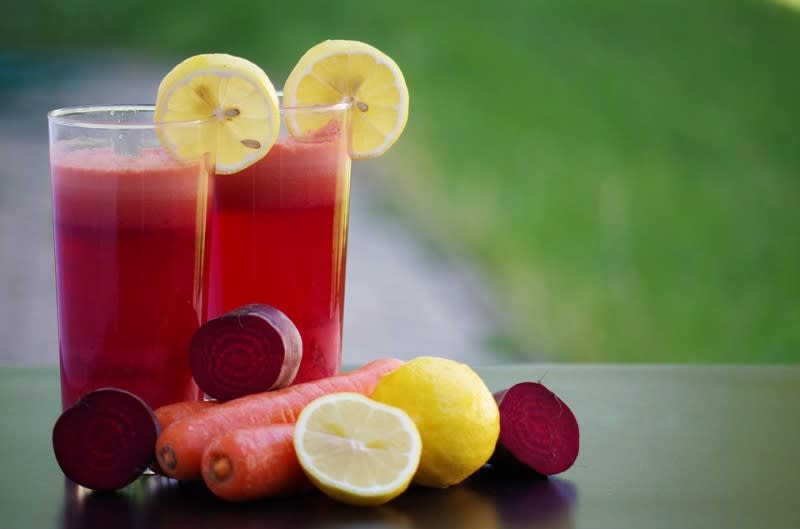Detoxes are typically not rosy for the first few days. One is bound to experience digestive issues. When it comes to beets and diarrhea, stakes tend to be higher because of the stool color.
Yes, beets can cause diarrhea. Eating many beets or while on a detox can make loose stools in some people. People who have irritable bowel syndrome may be more prone to diarrhea while eating beets as they are high in fiber.
Eating these red vegetables are not always smooth sailing for some. In other cases having beets be part of your every day routine can benefit your life.
Typically there are two extremes; panic from what they discover and visit a doctor only to find out all is well, or they might ignore severe symptoms.
Read about what to expect when taking this pretty vegetable for the first time and more on bowel-related issues.
Are Beets Diarrhea Prone?
The runs are more common to many who eat beets and are not used to a high fiber diet. Beets get a bad rep because they contain high fiber like other food which can lead to runny stools in some people.
Can beets cause constipation?
For your health, a nutritionist may ask you to do a beet test since a beet can turn stools red. The beet test is used to find out how long it takes your food to get from one end to the other. If you do not see any red in your stool within 24 hours, it’s taking too long for your stomach to digest wastes.
Low stomach acid can make it hard to digest or absorb nutrients which can make you constipated. The effects of beet juice can help regulate your digestive system.
Read here about the beet test.
Do beets cause diarrhea?
When starting a detox through any vegetable or fruit regiment/juicing, two things are likely to happen.

You either get runny stools or become constipated. This happens because the digestive system is working hard to rid the body of toxins which is good for your overall health. Since it occurs unexpectedly, your system goes into upheaval. Gastrointestinal discomfort and other symptoms usually follow.
When you first eat raw beets or any food as part of a health change, it can result in your system going through a detoxification process. The same is true with taking beet juice. What’s more, the color of your stool may change. This is known as beeturia. However, that happens to only about 10 percent of the population.
Overall, if you are sensitive, your bowel movements will change, and you will experience some gastrointestinal discomfort too.
Do beets make your poop or urine red?
When you do get beets diarrhea-related concerns, you will find that stools turns red. That is utterly frightening for anyone unaware of the connection. The first instinct might be to believe that there is internal blood coming out in your stools and you need medical attention.
Yes, these pretty red vegetables can turn your stool red.
We find that for some the red color clears after a few days, along with loose stools. If it, however, goes on for long, you should visit your doctor to eliminate other possibilities. It would be unfortunate and even dangerous if the color were indeed blood, but you were attributing it to beeturia. Pain and other abnormal signs are indicators of a severe issue.
If your urine is pink or red it could be a sign of beeturia. Drinking more water can help flush the pigment out sooner.
The stool or urine may turn red when the red-purplish pigment doesn’t get absorbed in the body. That ought to take place in the colon, but when there is high oxalic acid, the body is unable to absorb minerals, the beetroot’s betalain pigment included. When the colon is functioning well, the decolonization pigment should take place in the colon.

Digestive Concerns about Beets and a Bowel Movement
If you have irritable bowel syndrome or generally a sensitive gastrointestinal system, then you are likely to experience a heightened level of discomfort than the average person.
The side effect of flatulence, bloating, cramping or abdominal pain will be some things that you encounter. I recommend that you start with a quarter cup serving. Once you are acclimated, continue adding small portions gradually. A cup a day is typically enough to rip the benefits of beets.
For some people, it is not that straightforward. For them, it could be a case of food sensitivity or an allergy. If even after taking a small number of beets for a few days you experience discomfort, it is likely that you have sensitivity.
If you are allergic, the symptoms are more pronounced, but they are extremely rare. Either way, you should stop consuming beets and visit your doctor.
Consuming Beet Juice and Symptoms
If that is happening, you are likely taking beet juice or beet salads because you are looking to have positive side effects for your digestive system and become a healthier you.

Generally, it should not be a reason for concern. It only ought to be if it is prolonged and you have previous stomach issues.
How long does poop stay red after eating beets?
Most likely it will take 1-3 days for your poop to turn normal. It all depends on how long it takes for food to get out of your system. The effects of the consumption of a beet here are there results in a healthy outcome for most.
How long does it take the beets to pass?
Beets can pass in stool or urine and the time varies depending on the condition of the digestive system. For a healthy person, the average time is between 18 to 24 hours. The time is shorter for others, if constipated.
Are beets a natural laxative?
The cleansing power of the food, beetroot can lead one to presume that beets are a laxative. It only acts as one when you start taking them. As your body adjusts to high fiber content every day, your stools can turn regular.
So can beetroot result in loose stools?
Yes, the effect of high fiber can cause loose stools.
Is a bloody poop from beetroot an emergency?
If after taking beets your diarrhea is red, then there is no reason for concern as you could be having beeturia, which is harmless. Relax, it probably isn’t blood. However, if you were having red bowels before taking beets for a prolonged period, then you ought to seek immediate medical attention and consult your doctor.
Are beets good for your digestive system?
On average, the fiber in raw beets does make it a fantastic digestive companion. Having beetroots is also linked with the lowering of one’s risk of getting diverticular disease (small budges appearing on the digestive tract) and colon cancer. It is also ideal because the fiber in the beets promotes regular bowel movements.

